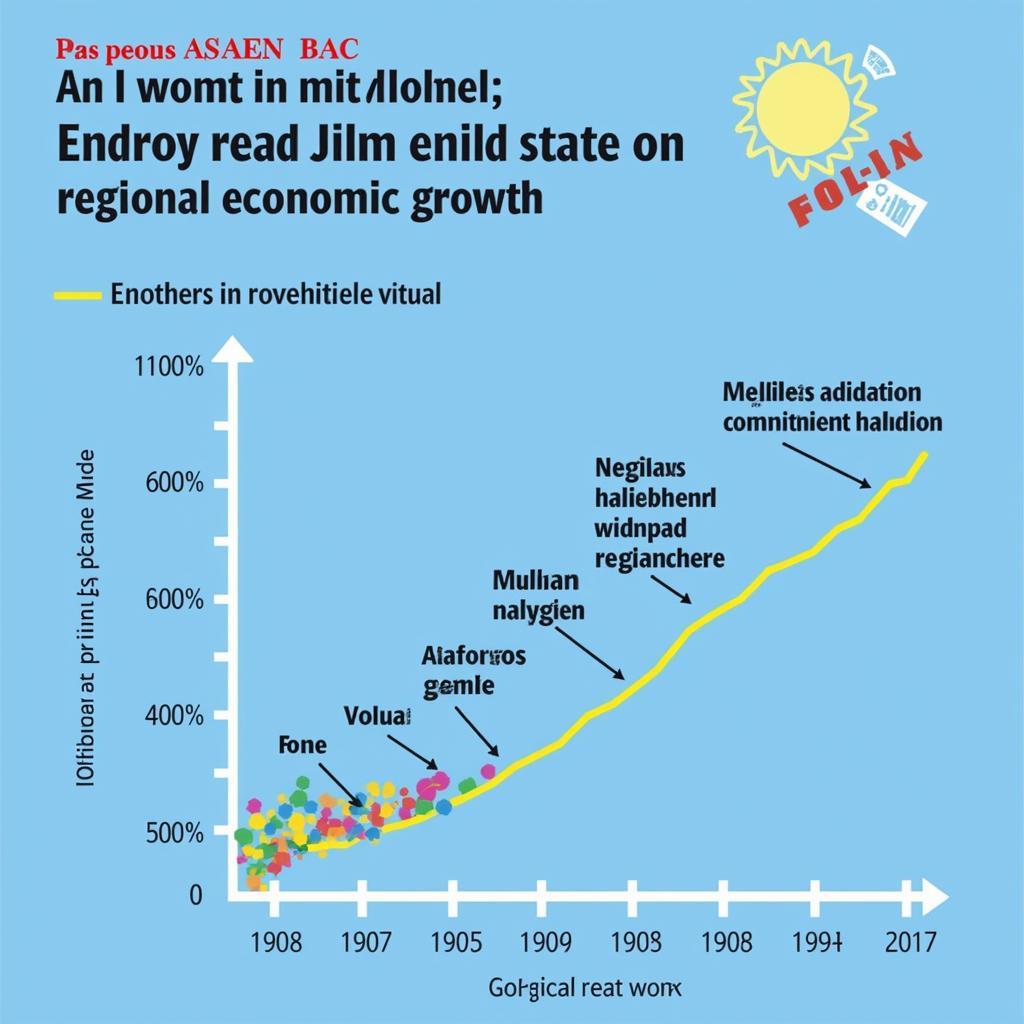The Asean Bac, or ASEAN Business Advisory Council, plays a vital role in fostering economic growth and integration within the Southeast Asian region. Established in 2001, this council acts as a crucial bridge between the public and private sectors, advising ASEAN leaders on key business and economic issues. This article will delve into the complexities of the ASEAN BAC, exploring its functions, impact, and significance in shaping the future of Southeast Asia’s economic landscape.
What is the ASEAN BAC and its Core Objectives?
The ASEAN BAC serves as the primary voice of the ASEAN business community, providing valuable insights and recommendations to policymakers. Its core objectives revolve around championing the private sector’s perspectives, advocating for policies that enhance competitiveness, and facilitating closer collaboration between businesses across ASEAN member states. By fostering a conducive business environment, the ASEAN BAC contributes significantly to regional economic integration and sustainable development. Check out how Thailand is involved in ASEAN BAC Thailand.
What are the primary functions of the ASEAN BAC? The council engages in extensive research and analysis, identifies key challenges and opportunities, and formulates concrete proposals for ASEAN leaders. These proposals address a wide range of issues, from trade facilitation and investment promotion to infrastructure development and human capital development.
How Does the ASEAN BAC Promote Cross-Border Collaboration?
The ASEAN BAC plays a pivotal role in promoting cross-border collaboration by organizing business forums, workshops, and networking events. These platforms provide opportunities for businesses from different ASEAN countries to connect, share best practices, and explore potential partnerships. By facilitating such interactions, the council fosters a sense of community and encourages greater regional economic cooperation.
Key Initiatives of the ASEAN BAC
The ASEAN BAC has undertaken several key initiatives to promote regional economic integration. These initiatives include developing strategies to enhance trade and investment flows, advocating for the harmonization of regulations, and promoting the adoption of best practices in corporate governance and sustainability. The council also works closely with other ASEAN bodies to ensure alignment and synergy in their efforts. You can find helpful background information on ASEAN at ASE background checks.
Impact of the ASEAN BAC on Regional Economic Integration
The ASEAN BAC’s efforts have contributed significantly to the progress of regional economic integration. By providing a platform for dialogue and collaboration between the public and private sectors, the council has helped to create a more conducive business environment in ASEAN. This, in turn, has led to increased investment, enhanced trade flows, and improved competitiveness of ASEAN businesses in the global marketplace.
 ASEAN BAC Impact on Regional Economic Growth
ASEAN BAC Impact on Regional Economic Growth
The Future of the ASEAN BAC
The ASEAN BAC is poised to play an even greater role in shaping the future of Southeast Asia’s economic landscape. As the region continues to integrate and face new challenges and opportunities, the council’s expertise and insights will be crucial in guiding policymakers and businesses towards sustainable and inclusive growth. For some great presentation backgrounds about ASEAN, see ASEAN background for ppt.
How can businesses leverage the ASEAN BAC?
Businesses can leverage the ASEAN BAC by actively participating in its activities, engaging in dialogue with policymakers, and utilizing the council’s resources and expertise. By doing so, they can gain valuable insights into the region’s economic landscape, network with other businesses, and contribute to shaping the future of ASEAN. You can even find resources from past events like ASEAN BAC 2017.
“The ASEAN BAC is a vital force in driving regional economic integration,” says Dr. Maria Santos, a leading economist specializing in Southeast Asian economies. “Its collaborative approach and focus on practical solutions have made a significant contribution to the region’s economic progress.”
“The council’s efforts to promote cross-border collaboration have been instrumental in creating a more dynamic and integrated ASEAN business community,” adds Mr. Lee Chen, CEO of a prominent regional conglomerate. “The ASEAN BAC has provided a platform for businesses to connect, share best practices, and explore new opportunities.”
Conclusion
The ASEAN BAC is a critical driver of economic integration and growth in Southeast Asia. Its collaborative approach, focus on practical solutions, and dedication to fostering a conducive business environment have made a significant contribution to the region’s economic progress. The ASEAN BAC continues to play a vital role in shaping the future of Southeast Asia, ensuring sustainable and inclusive growth for all member states. For those looking for presentation visuals, see our ASEAN background PPT.
 Future of ASEAN BAC and Regional Economic Integration
Future of ASEAN BAC and Regional Economic Integration
FAQ
- What does BAC stand for in ASEAN BAC? BAC stands for Business Advisory Council.
- When was the ASEAN BAC established? The ASEAN BAC was established in 2001.
- What is the primary role of the ASEAN BAC? The primary role of the ASEAN BAC is to advise ASEAN leaders on business and economic issues.
- How does the ASEAN BAC promote regional economic integration? The ASEAN BAC promotes regional economic integration by fostering dialogue, facilitating collaboration, and advocating for policies that enhance competitiveness.
- How can businesses benefit from engaging with the ASEAN BAC? Businesses can benefit from engaging with the ASEAN BAC by gaining valuable insights, networking with other businesses, and contributing to shaping the future of ASEAN.
- What are some of the key initiatives of the ASEAN BAC? Key initiatives include promoting trade and investment, harmonizing regulations, and advocating for sustainable business practices.
- What is the future outlook for the ASEAN BAC? The ASEAN BAC is expected to play an increasingly important role in shaping the future of Southeast Asia’s economic landscape.
Need support? Contact us 24/7: Phone: 0369020373, Email: aseanmediadirectory@gmail.com or visit us at: Thon Ngoc Lien, Hiep Hoa, Bac Giang, Vietnam.
